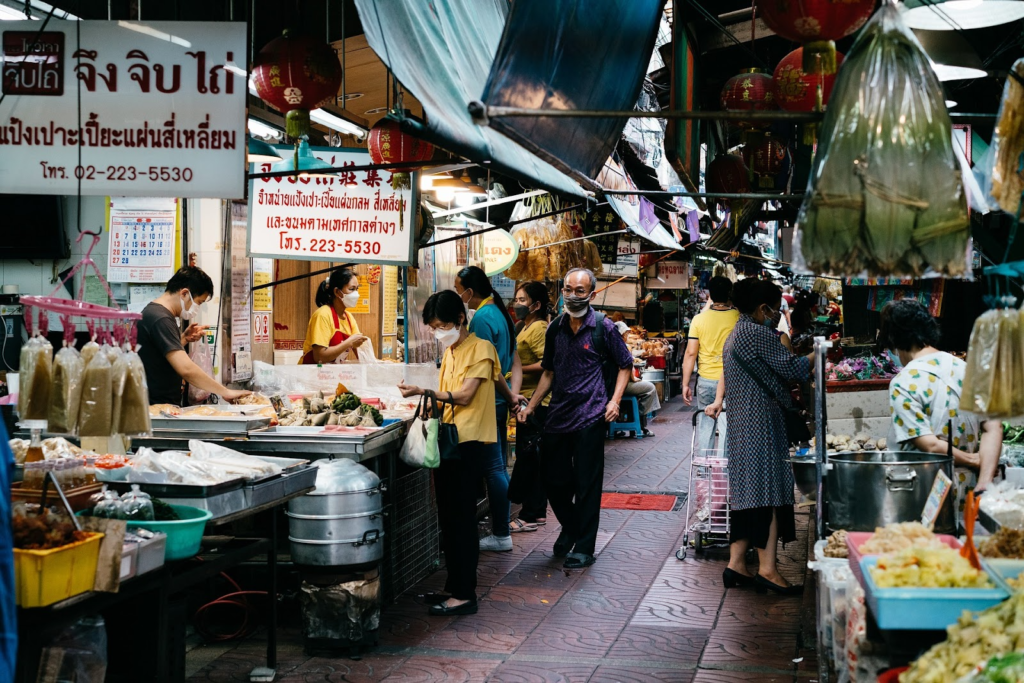
Traveling is more than just exploring new destinations; it’s immersing ourselves in the rich tapestry of cultures that make our world diverse. Understanding local customs and traditions opens doors to unforgettable experiences and deeper connections. In this joyful journey of cultural exploration, learning vocabulary related to customs, traditions, festivals, and celebrations becomes the key to unlocking a destination’s heart. So, let’s embark on a voyage of discovery!
Enhancing Cultural Awareness and Appreciation:
Understanding and appreciating customs and traditions expands our cultural awareness and helps us navigate social interactions with ease and respect. By embracing local ways of life, we cultivate a deeper appreciation for the values and beliefs that shape communities. This understanding bridges cultural gaps, fostering meaningful connections and leaving a positive impact wherever we go.
Benefits of Learning Vocabulary:
Learning vocabulary related to customs and traditions enriches travel experiences and enables active participation in a culture. Imagine immersing yourself in vibrant festivals, effortlessly conversing with locals in their language. Understanding the significance of traditional clothing or savoring authentic cuisine brings us closer to a culture’s heart.
As we journey through different customs and traditions, we discover a kaleidoscope of celebrations. From enchanting Lunar New Year festivities to the joyous spirit of Diwali and the exuberance of Carnival, each event tells a unique story. With newfound vocabulary, we become active participants, immersing ourselves in the rhythm of local life.
In this modern age, online language lessons offer a convenient way to learn about customs and traditions. Equipped with knowledge, let’s understand, respect, and celebrate the diverse cultures that await us during our travels.
Let us embrace the world with open minds and joyful hearts. By understanding and celebrating customs and traditions, we embark on a transformative journey of self-discovery. So, let’s set forth armed with knowledge and a profound appreciation for our shared humanity. Bon voyage!
Researching Local Customs and Traditions:

To embark on a journey of cultural immersion, equip yourself with knowledge about the local customs and traditions of your destination. Online resources provide valuable insights, including travel websites, blogs, articles, and local forums. Traditional travel guides and books offer comprehensive overviews of a destination’s cultural landscape.
Don’t forget the power of personal connections. Seek recommendations from locals or fellow travelers who have experienced the destination. Engage in conversations, join travel forums, or connect with those appreciative of local customs and traditions. Their insights and stories paint a vivid picture and help prepare for an immersive experience.
The journey of researching local customs and traditions is an opportunity to foster connections and build bridges between cultures. Embrace diverse perspectives and be open to wisdom shared by those who have tread similar paths.
Armed with research, embark on your travels with genuine respect and understanding of the customs and traditions awaiting you. Interactions with locals will be infused with warmth and appreciation, creating unforgettable memories and forging friendships that transcend borders.
Dive into the vast world of information, seek guidance, and set forth on your journey of cultural exploration. Together, let’s celebrate the beautiful tapestry of customs and traditions that make our world enchanting.
Vocabulary for Customs and Traditions:
As we immerse ourselves in the vibrant tapestry of customs and traditions, learning appropriate vocabulary becomes our passport to deeper connections and meaningful interactions. Let’s embark on a linguistic journey that navigates social nuances with grace and respect.
Greetings and expressions form the foundation of any cultural exchange. Discover how locals greet each other and learn phrases for specific occasions. Whether it’s a cheerful “Buenos días” or a respectful “Namaste,” these greetings instantly make you feel part of the community.
Expand your vocabulary to include major festivals and celebrations. From the Lunar New Year to Christmas, from Diwali to Ramadan, each festival has its unique customs and traditions. Learning phrases associated with these celebrations allows you to actively engage in the festivities, convey your well wishes, and connect with locals on a deeper level.
Delve into the realm of traditional clothing and accessories. Discover the names of iconic garments like the kimono, saree, or kilt, and understand their cultural significance. Knowing how to appreciate and refer to traditional attire shows respect for the customs and heritage of the community you’re visiting.
Cuisine is an essential part of any culture, and learning food-related vocabulary opens up a world of culinary exploration. Familiarize yourself with local dishes, ingredients, and cooking techniques. Expressing your love for a particular delicacy or ordering food in the local language enhances your dining experience and demonstrates your appreciation for the gastronomic heritage of the region.
Etiquette and customs play a vital role in social interactions. Learning appropriate behavior, gestures, and taboos helps you navigate unfamiliar social situations with grace and respect. Whether it’s understanding the significance of removing your shoes before entering a home or learning the proper way to address elders, cultural sensitivity makes a lasting impression.
Lastly, explore vocabulary related to traditional arts and crafts. From intricate pottery to flamboyant dance forms, every culture boasts unique artistic expressions. By learning the names of art forms, musical instruments, or handicrafts, you gain a deeper understanding of the creativity and craftsmanship that define a culture’s identity.
Remember, learning vocabulary related to customs and traditions is a continuous process. Embrace the opportunity to expand your knowledge, appreciate the diversity of our world, and create meaningful connections along your journey.
Embracing the customs and traditions of a destination enriches our travel experiences and fosters a deeper understanding and appreciation of different cultures. By learning vocabulary associated with customs, traditions, festivals, and celebrations, we open ourselves up to immersive experiences and create genuine connections with locals.
Researching local customs and traditions is essential before embarking on a trip. Online resources, travel guides, and personal connections provide valuable insights and recommendations. Armed with knowledge, we can approach our travels with respect, understanding, and a genuine desire to engage with local customs and traditions.
Learning vocabulary related to greetings, festivals, traditional clothing, cuisine, etiquette, and arts and crafts allows us to actively participate in the cultural fabric of a destination. It bridges communication gaps, fosters connections, and leaves a positive impact on the communities we visit.
So, let’s embark on our journey with open minds and open hearts, celebrating the customs and traditions that make our world a beautifully diverse place. Through this cultural exploration, we not only discover the richness of other cultures but also gain a deeper understanding of ourselves and our shared humanity. Bon voyage!


